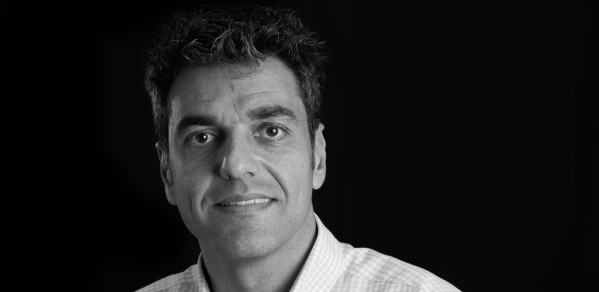
The European Research Council (ERC) has announced the names of 255 outstanding research leaders to be awarded ERC Advanced Grants. The funding is amongst the EU’s most prestigious and competitive, providing leading senior researchers with the opportunity to pursue ambitious, curiosity-driven projects that could lead to major scientific breakthroughs. The new grants, worth in total nearly €652 million, are part of the EU’s Horizon Europe programme.
The ERC is genuinely unique in that it generously funds long, ambitious, and risky fundamental research projects. I feel honoured and privileged that the ERC continues to fund my research in information theory.
Professor Albert Guillén i Fàbregas
Albert Guillén i Fàbregas, Professor in Communications and Information Theory is among 4 Cambridge researchers who have won Advanced Grants awarded by the ERC.
His project is entitled "Scaling and Concentration Laws in Information Theory" (SCLIT), he explains the project below:
A notion embedded in Shannon’s and most work in Information Theory is the very concept of rate, defined as the exponential growth rate of the number of messages to transmit or compress. The probabilistic law governing general information processing systems may be such that the optimal number of messages does not scale exponentially with the length of the sequences. The vast majority of the Information Theory literature assumes an exponential number of messages and thus, ignores the rich amount of possible scaling functions in many important settings. The main aim of this project is to develop a fundamental understanding of rate and error probability scaling. This will not only further develop Information Theory, but will find applications in the efficient design of wireless communications systems where communication is dominated by outages (e.g., WiFi, or other indoor scenarios).
Professor Guillén i Fàbregas says: "The ERC is genuinely unique in that it generously funds long, ambitious, and risky fundamental research projects. I feel honoured and privileged that the ERC continues to fund my research in information theory."
Iliana Ivanova, Commissioner for Innovation, Research, Culture, Education and Youth, said: "To all the new ERC grantees, my heartfelt congratulations! These grants will not only support leading researchers in pushing the boundaries of knowledge, but also create some 2500 jobs for postdoctoral fellows, PhD students and other research staff across Europe. This investment nurtures the next generation of brilliant minds. I look forward to seeing the resulting breakthroughs and fresh advancements in the years ahead.”
President of the European Research Council Prof. Maria Leptin said: “Congratulations to the 255 researchers who will receive grants to follow their scientific instinct in this new funding round. I am particularly happy to see more mid-career scientists amongst the Advanced Grant winners this time. I hope that it will encourage more researchers at this career stage to apply for these grants.”
Professor Guillén i Fàbregas' specific research interests are in the area of communication theory, information theory, coding theory, digital modulation and signal processing techniques, particularly with wireless terrestial and satellite applications.
He received the Telecommunication Engineering Degree and the Electronics Engineering Degree from Universitat Politècnica de Catalunya and Politecnico di Torino, respectively in 1999, and the PhD in Communication Systems from École Polytechnique Fédérale de Lausanne in 2004.
He has held appointments at the New Jersey Institute of Technology, Telecom Italia, European Space Agency, Institut Eurécom, University of South Australia, Universitat Pompeu Fabra (ICREA Research Professor) and the University of Cambridge.
He is a recipient of Starting, Consolidator, Advanced and Proof of Concept Grants from the European Research Council.
He is a member of the Young Academy of Europe, Fellow of the Institute of Electrical and Electronics Engineers (IEEE), Fellow of the Institute of Mathematics and its Applications (IMA), Editor of Foundations and Trends in Communications and Information Theory (Now Publishers) and previously of the IEEE Transactions on Information Theory (2013-2020) and IEEE Transactions on Wireless Communications (2007-2011).
He was a General co-Chair of the 2016 IEEE International Symposium on Information Theory, Barcelona, July 2016 and a Technical Program Committee (TPC) co-chair of the 2013 IEEE Information Theory Workshop, Sevilla, Sept. 2013. He is a TPC co-chair of the 2023 IEEE International Symposium on Information Theory, Taiwan.
ERC Advanced Grants
The ERC is the premier European funding organisation for excellent frontier research. The 255 ERC Advanced Grants, totalling €652 million, support cutting-edge research in a wide range of fields from medicine and physics to social sciences and humanities.
The European Commission and the UK Government have reached an agreement on the association of the UK to Horizon Europe, which applies for calls for proposals implementing the 2024 budget and onwards.
The ERC Advanced Grants target established, leading researchers with a proven track-record of significant achievements. In recent years, there has been a steady rise in mid-career researchers (12-17 years post-PhD), who have been successful in the Advanced Grants competitions, with 18% securing grants in this latest round.

